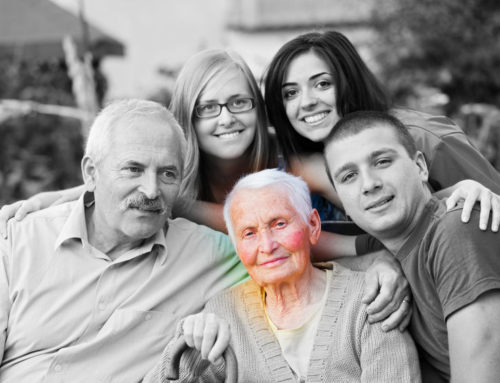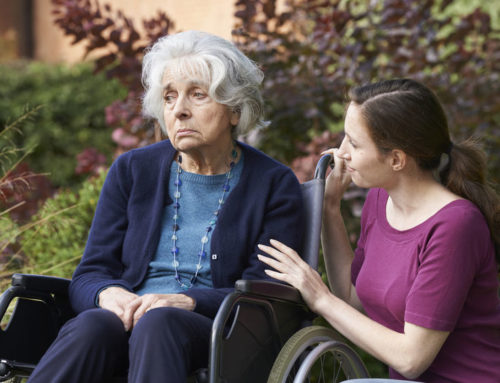Due to their ages, loved ones in their “golden years” oftentimes have very few family members or friends remaining in their lives. In fact, caregivers of these loved ones often find themselves coming to the realization that they are the only remaining family their loved ones have. Such a realization can be overwhelming for caregivers for many reasons. In particular, caregivers who must break potentially devastating news to their loved ones, such as an Alzheimer’s disease diagnoses, may find themselves facing one of the more difficult situations they’ve ever faced. Because you may be the only family member left in your loved one’s life, it is very likely that you will have to be the one to convey an Alzheimer’s disease diagnosis to him or her.
Before you sit-down and have a conversation with your loved one about his or her diagnosis, you should consult with your physician to see how this news might affect him or her. Your loved one’s physician may have some valuable insight that can affect whether or not you decide to impart the diagnosis. To explain, you should know that professionals often disagree over whether or not revelation of a diagnosis is something you should reveal to your loved one. Sometimes the news is extremely unsettling and can result in your loved one doing something rash.
That said, if the advice offered by a physician with regard to revealing a diagnosis doesn’t sit well with you, then you may want to consider speaking with another to get a second opinion. Because you know your loved one best, you should know that your own input if extremely valuable. Finally, as the diagnosis will undoubtedly spur you to have many legal questions, you should take time to consult with an Ohio elder law attorney. A qualified elder law attorney can help you address many of the concerns you have with regard to how to best handle your loved one’s estate and any other affairs.





